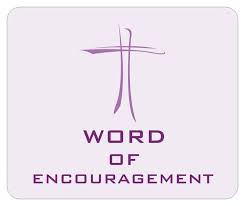An invitation
When I begin my daily devotions, I open with Psalm 119:18: Open my eyes, that I may see wondrous things from Your law. My favorite teacher, Alistar Begg, often begins his bible study sessions with this prayer, “Make the book come alive to me.”
Our intent is the same though our approach may differ. We invite the Holy Spirit to join us as our Teacher, as we seek God’s instruction for our life. Doing this, we are better able to navigate in this post-modern world where there are no absolutes nor acceptable standards of rightness.
As we examine our current society, it appears what is right or wrong is left to the judgment of the individual. In the absence of a common standard of right and wrong, anything goes.
The Heart wants what the Heart wants
People reject a standard for truth because of their greater desire to do “that which seems right in their own eyes”. But what is right?
A recent Barna Research study, The End of Absolutes: America’s New Moral Code, found no agreement on the definition of morality today.
What is it based on? Where does it come from? How can someone know what to do when making moral decisions? According to a majority of American adults (57%), knowing what is right or wrong is a matter of personal experience. This view is much more prevalent among younger generations than among older adults. Three-quarters of Millennials (74%) agree strongly or somewhat with the statement, “Whatever is right for your life or works best for you is the only truth you can know,” compared to only 38 percent of Elders. And Millennials (31%) are three times more likely than Elders (10%) and twice as likely as Boomers (16%) and Gen-Xers (16%) to strongly agree with the statement.
People want “what they want” including freedom to choose what fits their preference and lifestyle, even if it means disobedience to God. [1]
The need to see spiritually
What then are we to do? It is critical that we as followers of Jesus Christ, develop an “eye” for what is truth versus what is error (1 John 4:1). We began this discussion in 2020 in our series on spiritual discernment. However, during these end times, we must be even more intentional, vigil, and alert by “seeing” our world through “spiritual eyes” (1 Pet. 1:13).
This 21st century challenge is similar to what the Disciples and the early Church faced. They encountered a society that was “hostile” to the things of God and where men “leaned to their own understanding” (Prov. 3:5).
The Disciples had to develop a “new view” of the world. Jesus taught them that view in the Sermon on the Mount (Matthew 5-7). It was the “Kingdom view”. Believers would have to “see” things differently than the rest of the world. They would learn to see with spiritual eyes.
Through the leading of the Holy Spirit, the Disciples ultimately proclaimed the gospel of Jesus Christ. They participated in ushering in the Kingdom of God. We have that same opportunity today.
Next week, we’ll talk more about gaining spiritual eyes.
Time to Practice
I invite you to begin “practicing” seeing with spiritual eyes. Following are (3) scriptures to read and meditate on this week. Feel free to use different translations and paraphrases. Get your journal out as you read and invite the Holy Spirit to join you.
Jeremiah 5:21-29
Matthew 6:22-23
1 Corinthians 2:13-16
Answer these questions for each scripture you read:
- How does this scripture relate to my personal walk with God?
- How does it influence my view of 21st century society?
- What “new” insight did the Holy Spirit reveal to me in this scripture?
[1] Spiritual Discernment: Light for Darkened Eyes






